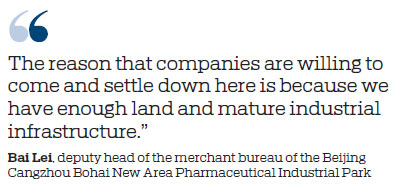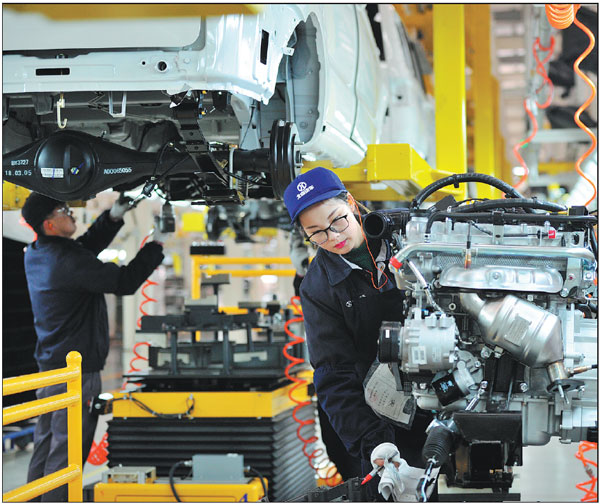Winds of change fast blowing across Cangzhou
Five years after relocating from Beijing to a small city in neighboring Hebei province for work, 36-year-old Liu Zhidong is now content with the new environment.
As an executive with Beijing Winsunny Pharmaceutical, Liu is one of the many whose life has undergone radical changes since the integrated development of the Beijing-Tianjin-Hebei region was initiated in 2014.
He was assigned to Cangzhou, Hebei in 2015 when his company transferred part of its production lines there.
Instead of commuting between the two cities, Liu decided to move to Cangzhou with his family.
"Housing prices in Cangzhou are much lower than that in Beijing and the transportation is convenient," said Liu.
Living in a spacious apartment of 140 square meters, Liu spends less than 15 minutes for his work commute.
More room for professional growth, however, has been the bigger draw for the ambitious young man to relocate.
With his company's new unit in Cangzhou raking up accolades consistently, Liu has seen his professional achievements soar. He has moved up from being just a researcher to being the director of research and production.

With annual production of 46.89 metric tons of active ingredients in 2018, the factory is among the 114 pharmaceutical companies headquartered in Beijing and Tianjin that have expanded their manufacturing bases to Beijing Cangzhou Bohai New Area Pharmaceutical Industrial Park in Hebei. The industrial park is now home to 137 pharmaceutical projects, with the majority from Beijing.
A big advantage of the new development zone is the generous land use offered by the local government.
In the case of Liu's company, the new factory is five times the size of its headquarters in Beijing. It supplies 60 percent of the ingredients to the company for making pharmaceutical products.
"The reason that companies are willing to come and settle down here is because we have enough land and mature industrial infrastructure," said Bai Lei, deputy head of the merchant bureau of the industrial park.
With a decadelong history in developing chemical industries, the area where the new industrial park is located can help companies to cut costs and has mature infrastructure to control pollution.
In order to remove concerns about losing market share, companies that moved from the capital city to Cangzhou are allowed to retain their "Beijing identity".
They can continue to be registered and supervised in Beijing while producing pharmaceutical products in Cangzhou, according to Bai.
Zu Tianlin contributed to the story.
zhangyu1@chinadaily.com.cn
|
 Employees work on the production line of a BAIC vehicle factory in Cangzhou, Hebei province. The automobile industry is considered key to Cangzhou's development. Mou Yu / Xinhua |
(China Daily 03/01/2019 page10)


















